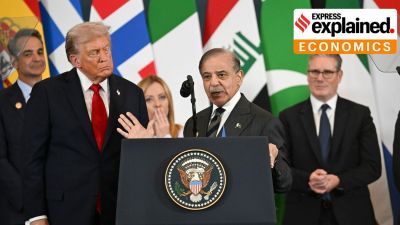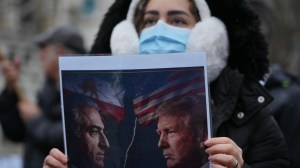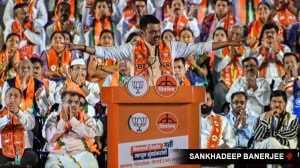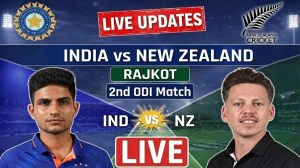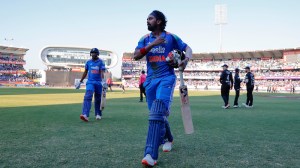Tragic 50 years
quot;We have failed to forge the diverse communities of our people into one coherent and strong nationquot;. President Chandrika Kumaratun...

quot;We have failed to forge the diverse communities of our people into one coherent and strong nationquot;. President Chandrika Kumaratunga8217;s words and the small 50th independence day ceremony inside the fortified parliament complex in Colombo say it all. The wasted years bear down heavily. There is no word but tragic for this most civilised of South Asian nations with its blood-soaked history of the last half century. It is at once a beacon and a warning to the subcontinent. The paradoxes are immense and nowhere more so than in its culture and politics. How, it is constantly asked, did a country with a predominantly Buddhist culture spawn two of the most determined armed insurgencies South Asia has seen, the Tamil Eelam movement in the north and east which continues, and the extreme-left wing, mainly Sinhala, JVP movement in the south which died out after it was brutally suppressed in two phases. Sri Lanka achieved fairly early on what none of its neighbours has managed even after 50 years. Universal literacy is nosmall boast in the surrounding sea of ignorance. Even with such exceptional attainments, the country8217;s politics has been driven as much by violence as debate and its political leaders have been brought down by the weapons of monks, rivals and extremists almost as often as by the ballot.
The struggle to build one nation out of diverse communities is the constant theme all over South Asia. In Sri Lanka the struggle began after independence and, fatefully, involved the aggressive assertion of Sinhala identity under S.W.R.D. Bandaranaike and a form of majoritarianism in which lay the seeds of most of the country8217;s future troubles. Fifty years have brought no substantial change in the outlook of the political establishment. Shortsighted politicians and the LTTE8217;s extreme and violent reaction have driven Sri Lanka to the edge. The India factor and New Delhi8217;s policies over the years have not been constructive, to say the least. Kumaratunga8217;s devolution proposals which promise a large measure of real autonomy tothe northern and eastern provinces are the best hope for the country. By rejecting the proposals without seriously engaging itself in negotiations, the LTTE threw away the best chance it had of finding a solution to the ethnic question. This response was not entirely unexpected and proved that Prabhakaran and the LTTE are inescapably locked into violence. But Kumaratunga has had extraordinary trouble selling the proposals to the Opposition with the result that the stalemate continues. Politicians are failing the country all over again.
Over 50,000 have died in ethnic conflicts, hundreds of thousands are homeless, security operations are a constant drain on the exchequer. As violence begets more violence and brutalises society, the politicians dither, tending their careers and personal constituencies rather than the national interest. As Sri Lankans look to the future, it will be with the same mixture of hope, despair and stoicism that has sustained them so far.
- 01
- 02
- 03
- 04
- 05


